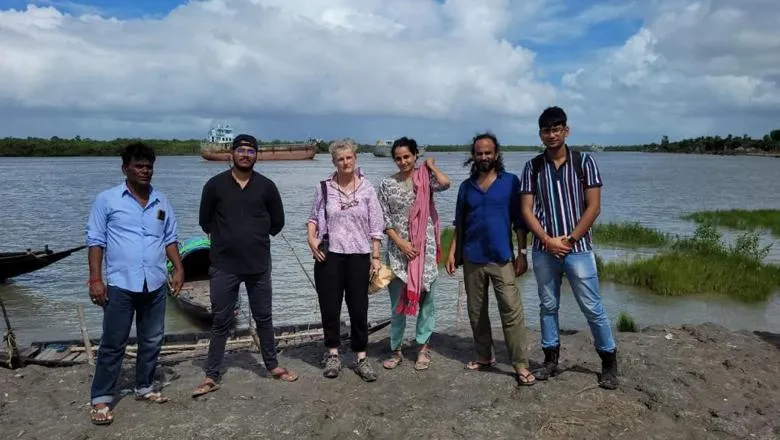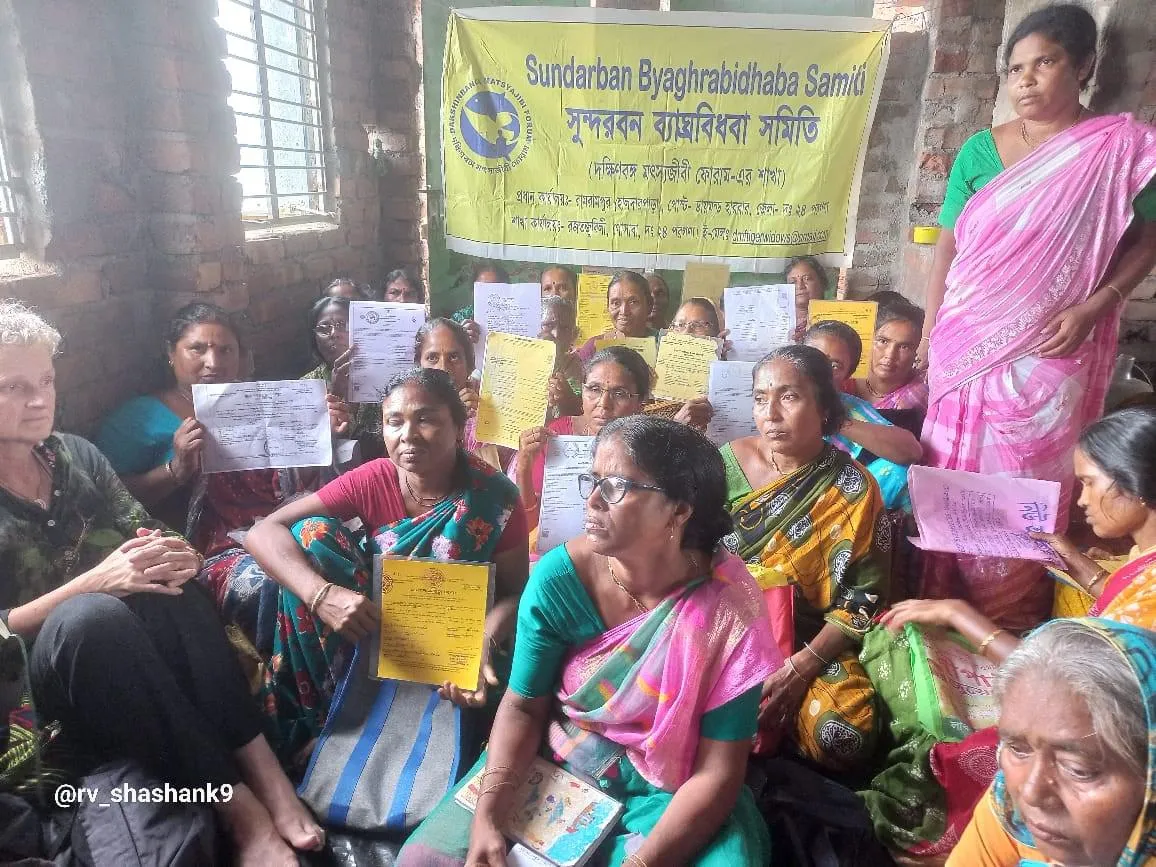The reason we partnered with this project is the persuasive power of the lawyer. The students who visited won over the trust of the local community. This work is not just helping the Sundarbans, we are helping everyone. The river belongs to all.
Subimal Da, Community Leader from Chetana Sangat
11 October 2023
King's Legal Clinic evaluates impact of successful cross-cultural module in India visit
A year since the King’s Legal Clinic launched the Transitional Remedies in Environmental Harm module, the King's Legal Clinic and their Indian partners met in Kolkata to evaluate the impact of the cross-collaborative module.

Sue Wilman, Assistant Director of the Legal Clinic, went to Kolkata to meet with academics from the Indian universities, West Bengal National University of Juridical Sciences (NUJS) and Jindal Global Law School (JGLS), the King's Legal Clinic partnered with on the module Transnational Remedies to Environmental Harms to review the impact of the course in early July. Other community based stakeholders and NGOs were also in attendance. The module seeks to promote aims of environmental justice, which is a core tenet of the King’s Legal Clinic’s mission.
The module takes a robust and innovative approach with clinical legal education practice underpinning the theoretical aspects of environmental law. LLM Students are taught via a ‘soft law’ approach with an opportunity to draft an Organisation for Economic and Cooperative Development (OECD) complaint.
Studying for the Transnational Remedies for Environmental Harm module was a humbling experience. To anyone considering taking it as a module, in my opinion, taking part on the course will equip you with skills that will be beneficial for students who want to practice in any field of law. I believe, it will even be of interest to students who aren’t studying law!
Adrienne Habbabou, KCL, LLM Student (2023)
Much of the inspiration behind the course is rooted in the Sundarbans region which occupies the border between India and Bangladesh. It is approximately 130 km from Kolkata and is unique in its biodiversity. The Sundarbans region is also the world’s only mangrove forest inhabited by tigers. Not only that, but it also has the largest recorded concentration of tigers in the world. The area is also home to a group of women known as ‘Tiger Widows,’ rural women who have been widowed by tiger attacks. Many of these women are yet to receive financial compensation from the Indian government and face financial and societal ostracisation on multiple levels. The Sundarbans region highlights how climate justice and social justice intersect, making it an appropriate case study for the module.
Students from the Indian universities had the opportunity to conduct field visits in the Sundarbans and to interview community members, including those forced to do prawn fishing for export which is harmful to the eco-system. They spoke to the women about their personal circumstances and broader questions about the impact of climate change on their environment. Rising sea-levels and cyclones have made the rural community increasingly dependent on prawn fishing as the land is more salinated.
Within a broader global context, 2023 has been a landmark year for climate litigation with many crucial rulings expected globally this year. Transnational environmental law is becoming a growing area of study within the broader context of environmental legal studies, and as a legal tool to try and tackle environmental issues.
Given the growing signification of climate litigation cases this year, the meeting in Kolkata was timely in its importance to review the impact and the efforts of the module and the Climate Justice Project, which was launched in 2021. King’s Legal Clinic launched the project to explore the effects of climate change on traditional communities in India and Bangladesh and assess whether large international investors were doing enough to assess the impact on human rights and ultimately provide remedies. Both ventures instil and seek to advance the Clinic’s overarching aims of advancing climate justice and addressing these issues.
This was a unique course. My eyes were opened by the exposure to the transnational legal system and the field visit to the Sundarbans. Applying the law rather than simply reading books about it. It was the best part of my international law course- I really enjoyed it.
Rohit Debnath, Law Student, West Bengal National University of Juridical Sciences (NUJS)

Sue Wilman was accompanied by a local lawyer Atin Chakrabarty. from Direct Initiative from Social and Health Action (DISHA) who represents the tiger widows in litigation. The group also included two LLM students from NUJS and anthropologist Megnaa Mehta, a guest speaker as part of the course.
The Transnational Remedies for Environmental Harm with Clinical Legal Education module is a partnership with West Bengal National University of Juridical Sciences (NUJS) and Jindal Global Law School (JGLS).
The module is jointly delivered by staff from three universities with Sue Willman, Lecturer in Law and Assistant Director of the King’s Legal Clinic, and Dr Emily Barritt, Co-Director of the Transnational Law Institute, contributing from King’s.

